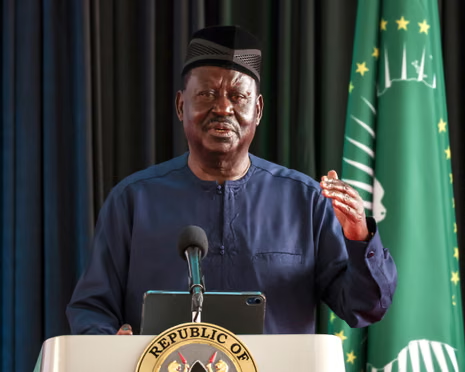WFP explores Zim’s food procurement hub status

By Staff Reporter
INDUSTRY and Commerce Minister Mangaliso Ndlovu has said the World Food Programme is exploring the possibility of designating Zimbabwe as a regional food procurement hub, a move that could transform the country into a strategic player in humanitarian supply chains across Southern Africa.
Zimbabwe can become an ideal regional food procurement hub due to its fertile land, existing agricultural capacity, supportive policies, and strategic location.
The WFP, the world’s largest humanitarian agency dedicated to combating hunger, provides food aid while also managing highly complex supply chains to ensure the timely delivery of food, especially in emergencies.
Under the proposed model, Zimbabwe would produce, process, and store food commodities for redistribution into the region.
This would allow the WFP to use the country as a central base for large-scale storage, logistics management, and coordinated transport of food to neighbouring countries experiencing food insecurity.
Speaking at the Zimbabwe Economic Development Conference (ZEDCON) in Bulawayo last week, Minister Ndlovu said, “WFP will distribute the commodities to the region from Zimbabwe, effectively designating it as a procurement zone.
“This will be done to centralise and streamline the sourcing of food and related commodities for WFP operations across Southern Africa. It’s an opportunity for investment in both agro-processing and manufacturing,” said Minister Ndlovu.
It is expected that such a development would have significant spill-over effects on Zimbabwe’s agricultural sector, boosting demand for local production while strengthening value chains in agro-processing and food manufacturing. It would also cement the country’s strategic position in regional trade and humanitarian logistics.
Zimbabwe already has strong comparative advantages, including a central geographic location, existing transport networks, and vast agricultural potential.
Establishing a procurement hub is therefore seen as both a humanitarian and economic opportunity.
The move comes as the Government continues to position agriculture at the centre of Zimbabwe’s economic transformation agenda, with investments in irrigation, mechanisation, and agro-industrial development aimed at enhancing productivity and resilience.
If adopted, the WFP model would mark a new milestone for Zimbabwe, placing the country at the heart of regional food security interventions while unlocking new avenues for investment and job creation in the agricultural and manufacturing sectors.
In his presentation, Minister Ndlovu noted that Zimbabwe offers diverse investment opportunities across multiple value chains.
In grain and food processing, he told delegates that there is potential for milling maize and wheat into flour, producing breakfast cereals, and developing bakery products.
Oilseed processing, especially for soya, sunflower, and cotton-seed, remains critical given the growing demand for cooking oil and related by-products.
The livestock and dairy industries provide scope for modern abattoirs, meat processing plants, hides and leather production, milk processing, yoghurt, cheese, and butter.










